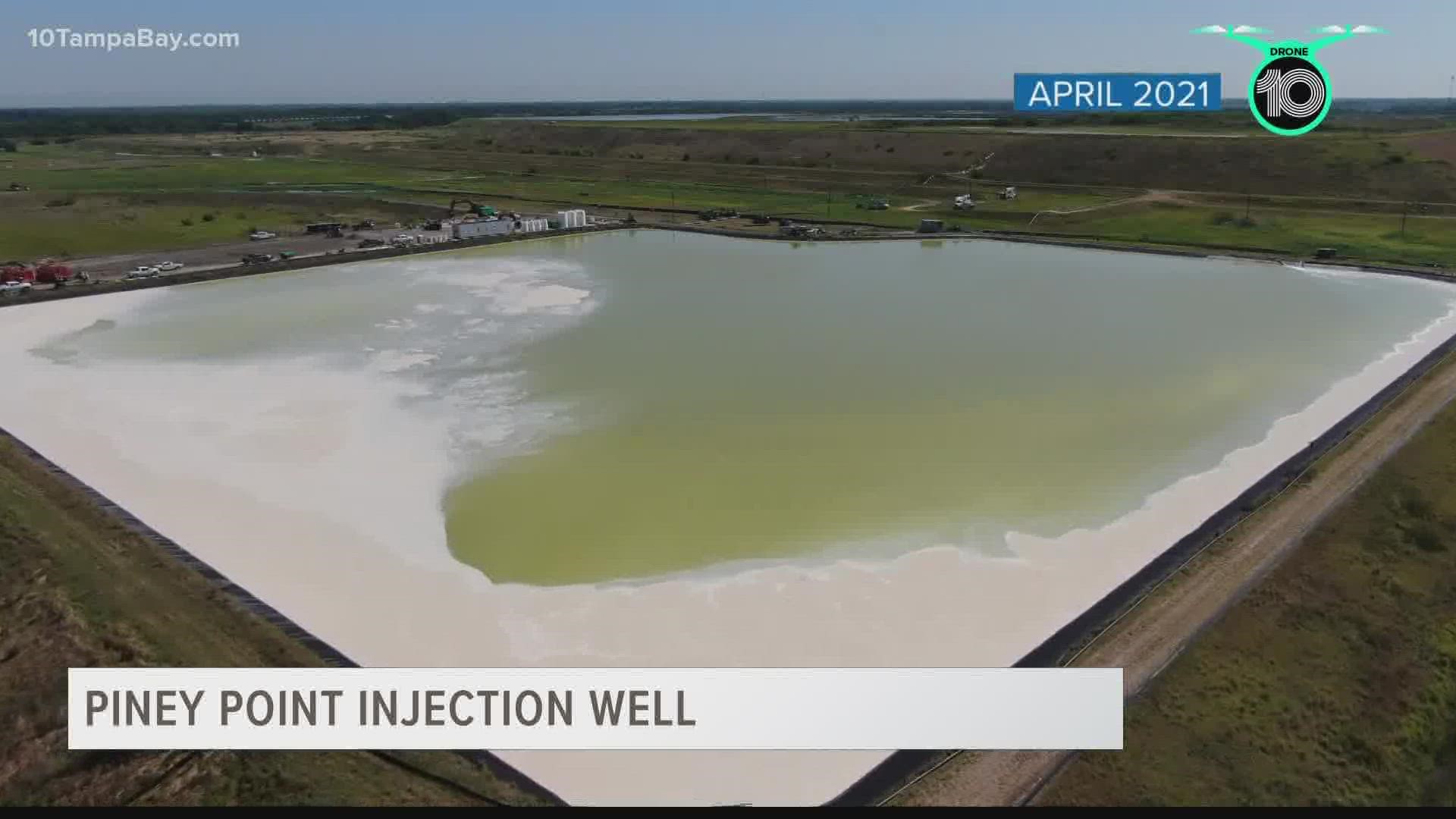MANATEE COUNTY, Fla. — The Florida Department of Environmental Protection this week finalized an agreement with a new court-appointed receiver to oversee the closure of the former Piney Point phosphate mining facility.
Environmental groups are worried about contamination, but the appointed receiver, Herb Donica, says there's no other safe way to get rid of the waste.
“I was against this when I heard about it. I said, ‘this is crazy. I don't want to do that,'" he said. However, when Donica reviewed the science, he said he felt the deep injection well was the best option.
“Deep well injection has been used since the 1930s,” he said. “Manatee County has four injection wells that they operate without any problems.”
Donica said the well will likely go about 3,000 feet below the earth’s surface to inject the millions of gallons of wastewater from the old Piney Point phosphate plant.
"They're probably out there now preparing their drilling rig,” he said.
Donica has worked with the Piney Point site in the past. He previously represented the bankruptcy trustee for Piney Point's parent company in the early 2000s.
RELATED: A deep injection well seems to be the solution for Piney Point's reservoir, but what exactly is it?
“I will be signing contracts with contractors and engineers for the design work and the ultimate excavation and moving gypsum stacks around,” he said, emphasizing the goal of closing the site safely.
However, there are fears among local environmental groups suing Manatee County that the waste could contaminate water in the aquifer.
"Manatee County should really do a lot more research as to what the alternatives are,” Justin Bloom, founder of Suncoast Waterkeeper told 10 Tampa Bay last week. “What is in that wastewater and what the risks are of injecting it into the deep aquifer?"
Donica says there are some heavy metals in the water, but they are filtered out. He adds that 90 percent of the phosphorous and nitrogen is removed before it's injected several layers below the aquifer--not into it.
“That water will migrate west towards the Gulf. And over a period of years, I’ve been told, 10,000 years maybe 100,000 years, that water will reemerge cleaner than the drinking water you buy in the bottle,” he said.
Still, it's a hard sell for environmentalists who told us last week they want the state to explore alternatives to drilling.
"If they start injecting this wastewater into the ground, we're prepared to bring that federal lawsuit,” said Bloom.
In a statement, the Department of Environmental Protection said, "we will not issue any permit that is not protective of Florida's environment and does not meet all requirements of Florida law."
The price tag for the deep injection well project is around $100 million. Donica says the original owner, HRK Holdings LLC, doesn't have the money to cover these costs and is currently in foreclosure.

